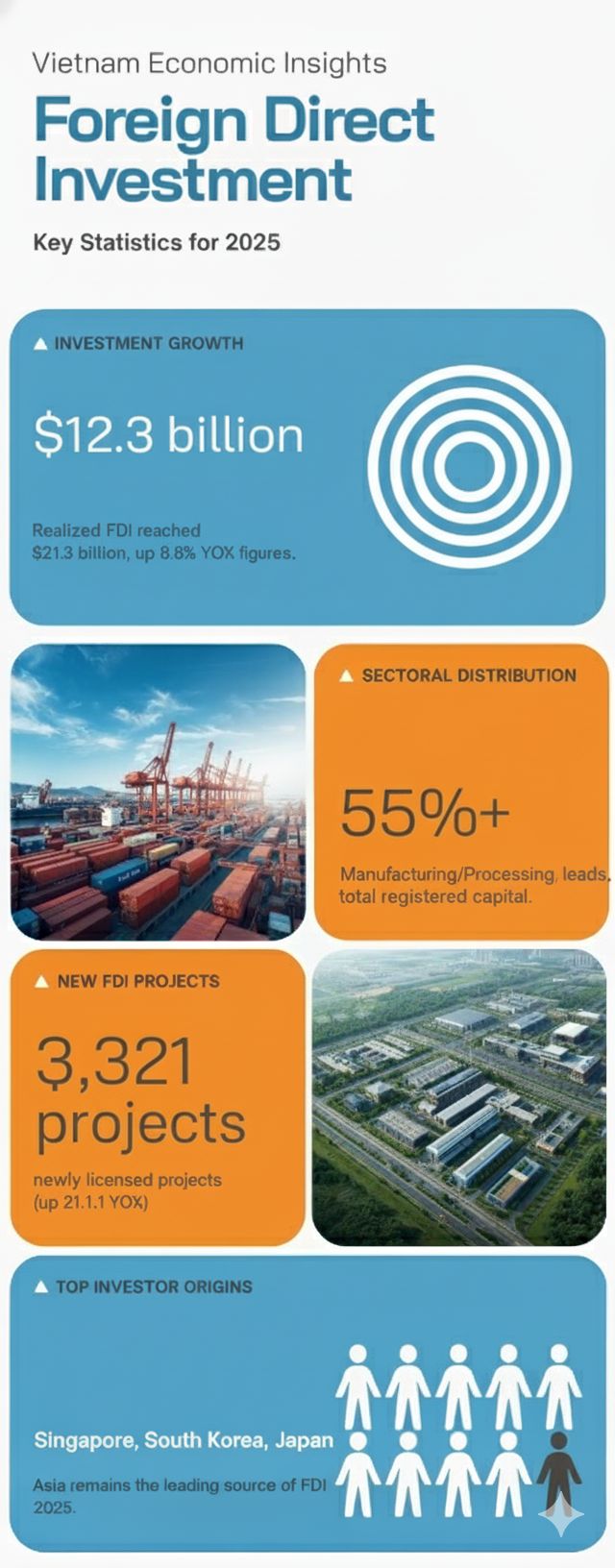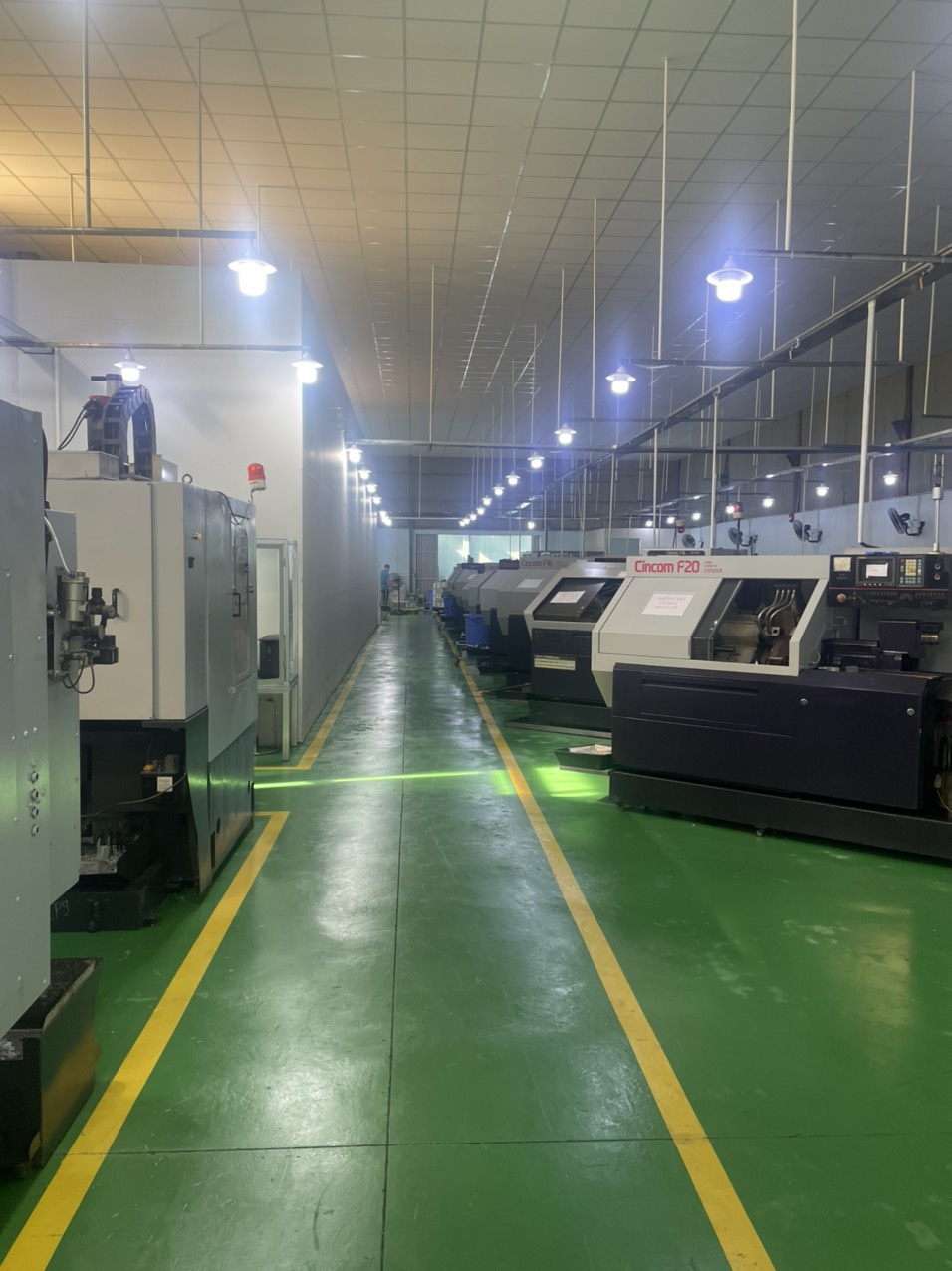By Franky Nguyen, AVF Decolletage
Introduction
In the past decade, Vietnam has quietly transformed from a low-cost production base into one of Asia’s most dynamic precision manufacturing hubs.
Once known primarily for textiles and basic assembly, the country now exports high-tolerance machined components, automotive parts, and aerospace-grade assemblies to customers around the world.
At AVF Decolletage, we’ve witnessed — and helped shape — this transformation.
From small manual workshops to ISO-certified factories running Swiss CNC and multi-spindle machines, Vietnam’s precision industry has matured rapidly through investment, training, and global collaboration.
Today, Vietnam is not just an alternative to China — it’s a strategic partner in the world’s advanced manufacturing supply chain.
Explore AVF Decolletage precision machining capabilities
1️⃣ Vietnam’s Transformation: From Basic Assembly to High Precision
In the early 2000s, most Vietnamese factories specialized in simple assembly and fabrication. Tooling and precision machining were limited.
But globalization and regional supply chain shifts — especially after 2018 — changed everything.
Several key developments accelerated Vietnam’s rise:
• Foreign Direct Investment (FDI): Global manufacturers from Japan, Korea, Europe, and the U.S. invested heavily in machinery and training.
• Education & Workforce Development: Technical schools (like Lý Tự Trọng, Cao Thắng, and Bach Khoa) began supplying well-trained CNC technicians and mechanical engineers.
• Infrastructure & Logistics: Vietnam’s ports, industrial zones, and logistics systems now rival its ASEAN peers.
• Digitalization: Adoption of CAD/CAM, ERP, and AI-driven machining optimization tools has increased factory efficiency and data accuracy.
As a result, Vietnam’s manufacturing base has evolved from “manual and low-margin” to “automated, data-driven, and globally competitive.”

2️⃣ Why Global Companies Are Turning to Vietnam
⚙️ 1. Strategic Supply Chain Diversification
As global trade tensions and tariff shifts continue, companies are actively diversifying production outside China.
Vietnam provides geographic proximity, stable trade agreements (CPTPP, EVFTA, RCEP), and lower operating costs — all while maintaining quality standards comparable to Japan and Taiwan.
⚙️ 2. Skilled and Stable Workforce
Vietnam’s young labor force — over 60% under the age of 40 — is technically skilled, disciplined, and increasingly proficient in CNC programming, CAD/CAM, and process optimization.
At AVF Decolletage, many of our technicians trained through Japan’s JIT (Just-In-Time) and Kaizen programs, blending local flexibility with global manufacturing discipline.
⚙️ 3. Cost Efficiency Without Quality Sacrifice
Vietnam offers 30–40% lower machining cost compared to Japan or the U.S., while maintaining ISO-certified quality.
This combination allows global OEMs to stay price competitive without compromising dimensional accuracy or documentation.
⚙️ 4. Proven Track Record with Global Brands
Vietnamese factories now supply Tier 1 and Tier 2 customers in:
-
Aerospace & Defense
-
Automotive & EV Components
-
Electronics & Connectors
-
Industrial Automation & Robotics
Companies trust Vietnam because of its transparency, quality culture, and continuous improvement mindset.
3️⃣ The Evolution of Precision Machining in Vietnam
In 2010, a typical precision shop had manual lathes and limited metrology.
By 2025, the best Vietnamese facilities run fully automated Swiss CNC, 5-axis, and multi-spindle screw machines.
Modern Vietnamese machining capabilities include:
-
Tolerances down to ±0.005 mm
-
Diameters as small as 0.5 mm
-
Full material traceability (ISO 9001:2015)
-
In-house plating, polishing, and assembly integration
-
Compliance with ROHS, REACH, DFARS, and aerospace documentation
AVF Decolletage is a prime example of this evolution — expanding from a domestic supplier to a global manufacturer with four facilities (VF1–VF4) and a U.S. sales office in Virginia.
4️⃣ Vietnam’s Competitive Advantage in Precision Manufacturing
1. Swiss CNC + Multi-Spindle Integration
Vietnamese factories increasingly blend Swiss CNC precision for small complex parts with multi-spindle efficiency for high-volume runs.
At AVF Decolletage, this integration allows production of both micro connector pins and automotive fittings in the same ecosystem.
2. Vertical Integration with Local Partners
Collaboration among specialized suppliers — plating, stamping, molding, and heat treatment — forms a complete value chain inside Vietnam.
This ecosystem minimizes lead time, improves control, and reduces total cost.
3. International Quality Standards
Most precision manufacturers now maintain ISO 9001, and several (including AVF) are moving toward AS9100 certification for aerospace customers.
Each export batch is accompanied by FAIR, PPAP, and material certifications aligned with U.S. and EU documentation standards.
4. Flexibility and Customization
Vietnamese factories excel at small-to-medium production runs and custom engineering support, ideal for companies seeking prototype-to-production partnerships.
5️⃣ Materials Mastery — Not Just Brass and Steel
Vietnamese manufacturers are no longer limited to standard brass or carbon steel.
The industry now machines:
-
Aluminum (AL6061, AL2017)
-
Brass (C36000, C17300, C19100, C54400)
-
Stainless Steel (SUS303, SUS316, SUS416)
-
Special Alloys for defense and aerospace programs
AVF Decolletage specializes in these materials — using Swiss CNC lathes, CAM automatics, and in-process SPC monitoring to achieve repeatable accuracy and surface finish across metals.
6️⃣ Technology and Automation Driving Growth
Automation and data integration are redefining how Vietnam manufactures.
Leading factories now implement:
-
Robotic loaders for 24/7 operation
-
Vision inspection systems for micro-components
-
AI-driven cycle optimization reducing scrap rates
-
Digital traceability linking CAD → CNC → QC data
-
Centralized ERP systems for live capacity planning
At AVF Decolletage, automation allows over 350 machines to operate continuously across four plants — ensuring competitive cost, consistency, and global delivery reliability.
7️⃣ Sustainability and Responsible Manufacturing
As sustainability becomes a global requirement, Vietnam’s precision industry is adopting greener processes.
Key initiatives include:
-
Coolant recycling systems and filtration for zero-waste coolant discharge
-
Scrap segregation and metal recycling programs
-
Energy-efficient machine retrofits and LED facility conversions
-
REACH-compliant plating to minimize chemical waste
At AVF, our environmental responsibility goes hand-in-hand with precision — ensuring both product integrity and ecological balance.
8️⃣ Vietnam’s Global Position: Trusted, Capable, and Ready
Vietnam now stands among Asia’s most promising precision manufacturing nations, rivaling Taiwan and Malaysia in capability while offering unmatched flexibility and value.
Global buyers choose Vietnam because:
-
It offers cost competitiveness with documented quality.
-
It has cultural and communication alignment with Western engineering teams.
-
It provides rapid prototyping and scalable production capacity.
-
It’s backed by political stability and trade access to major markets.
For companies seeking long-term supply partnerships, Vietnam is no longer a secondary option — it’s the new center of precision excellence.

Conclusion
Vietnam’s precision manufacturing growth isn’t accidental — it’s engineered.
Through decades of investment, training, and collaboration, the country has developed a manufacturing ecosystem capable of producing world-class components at globally competitive prices.
At AVF Decolletage, we’re proud to stand at the forefront of this movement — proving that Vietnam can deliver the same quality, precision, and reliability as any advanced industrial nation.
The rise of Vietnam is not the future.
It’s already here — and it’s machining the next generation of global innovation.
Learn more about our manufacturing capabilities: https://avfdecolletage.com/services/
Request for Quote: https://avfdecolletage.com/request-for-quote/
Frequently Asked Questions (FAQ)
Q1: Why are companies moving precision machining to Vietnam?
Because Vietnam offers a unique combination of technical capability, cost efficiency, and ISO-certified quality, making it ideal for global sourcing diversification.
Q2: Can Vietnamese manufacturers achieve the same tolerances as Japan or Switzerland?
Yes. Top-tier factories like AVF Decolletage maintain ±0.005 mm tolerances with full traceability and in-process inspection systems.
Q3: Is the supply chain strong enough for large-volume production?
Absolutely. Vietnam now has local plating, heat treatment, and assembly partners, reducing dependence on imports and improving lead times.
Q4: What industries does AVF Decolletage serve globally?
Aerospace, automotive, electronics, connectors, industrial automation, and defense — supplying over 1 million parts monthly worldwide.
Q5: How does AVF ensure global quality compliance?
Through ISO 9001:2015, ROHS/REACH compliance, material certification, and continuous process audits across VF1–VF4 facilities.


